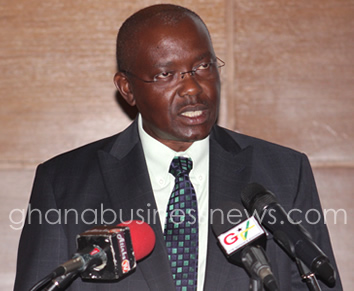World Bank educates Ghana on its Environmental and Social Framework Policy

Ghana has been selected as the first borrower country in Africa, and second in the world, to be schooled on the new Environmental and Social Framework (ESF) Policy of the World Bank.
The Philippines is the first country to have benefitted from the programme.
The ESF sets out the World Bank’s commitment to sustainable development through a bank policy and a set of environmental and social standards that are designed to support borrowers project with the aim of ending extreme poverty and promoting shared prosperity in the countries.
In particular, the framework comprises the World Bank’s vision for sustainable development, which sets out its aspirations regarding environmental and social sustainability.
The World Bank has, therefore, organised ESF Borrowers Workshop for high level government officials from the Ministries, Departments and Agencies.
Mr Henry G.R. Kerali, the Country Director of the World Bank in charge of Ghana, Liberia and Sierra Leone, said the ESF was an important mechanism for protecting people and the environment in project finance but it was not a radical departure from existing safeguards.
He said the ESF was developed building on decades of experience with the safeguard policies, good practices and lessons from previous projects and several years of extensive consultations with various stakeholders.
He noted that assessing and managing environmental and social impacts in the World Bank’s investment project finance had been a core concern of the institution for more than 40 years.
Mr Kerali said the Bank’s current safeguard policies, issued nearly 20 years ago, set the standards for multilateral development banks in protection for the people and the environment.
The safeguard policies apply to all International Banks for Reconstruction and Development (IBRD) and International Development Association (IDA) investment project finance, covering 1,345 projects with a net commitment amount of $185.2 billion, representing over 85 per cent of the World Bank’s total portfolio in terms of volumes, he noted.
“The safeguards have served the World Bank and our Borrowers well, but they needed to be brought up to date to harmonise with other IFIS such as IFC performance standards and to reflect concerns, which have emerged since the operational policies were drafted.
“The key improvements of the ESF are more systematic coverage of all environmental and social issues, new adaptive and clearer approach, and emphasis on strengthening country systems,” Mr Kerali said.
The World Bank is committed to a long-term process aimed at building borrower capacity to support implementation of the ESF, he added.
Mr Daniel Owen, the World Bank’s Senior Social Development Specialist in charge of the Africa Region, said ESF was an update to the existing World Bank safeguard policies, which had been in place for the last 20 years.
He said that Policy had been revised and modernised to be in line with current international standards and good practices across industries, and it borders on issues around labour and working conditions, stakeholder participation, transparency and accountability and mitigation actions for climate change.
Issues around health and safety, gender, vulnerability, disability, and discrimination that were missing from the current policy have been factored into the new ESF.
Mr Owen said the Bank intended to cover a bulk of the countries with the training by October this year.
He said civil society groups would also been trained on the ESF, as part of the efforts of building a national capacity for regulation and policy, and also implementation.
Source: GNA
